New superfoods and antioxidants appear on the health and wellness scene on a daily basis, each promising to boost immunity, fight inflammation, or improve overall vitality. However, one humble compound has quietly earned a place in the antioxidant hall of fame: quercetin.
While it may not have the glamorous reputation of vitamin C or turmeric, this powerful antioxidant has a long list of impressive health benefits.
The best part? It is probably already in your kitchen.
Let's look at why you should include more quercetin-rich foods in your diet and why this beneficial nutrient could become your new favorite.
What is Quercetin?
Quercetin is a flavonoid, which is a type of plant pigment that is commonly found in fruits, vegetables, and grains. Think of it as a tinny superhero that protects plants from environmental damage. When we eat these plants, it brings those same protective benefits to our bodies. It is well-known for its antioxidant, anti-inflammatory, and anti-allergic properties. It's like the Swiss Army knife of nutrients—it's versatile, effective, and works quietly behind the scenes.
Health Benefits of Quercetin
1. A Natural Anti-Inflammatory Substance
Chronic inflammation is at the root of a variety of health issues, such as arthritis and cardiovascular disease. Quercetin can reduce inflammation, potentially lowering the risk of these conditions. It works by inhibiting inflammatory molecules, making it a valuable addition to your wellness routine especially if you want to keep your body in balance.
2. Improves Immunity
Quercetin is an extremely effective immune system booster. It assists the body's defense against infections and can even shorten the severity and duration of colds. While quercetin is not a miracle remedy, incorporating it into your diet is similar to arming your immune system with extra protection.
3. Allergy Reliever
Have seasonal allergies that caused you to sneeze and itch your way through the spring? Quercetin may come to the rescue. Of course, it is a valuable “buddy” if you have any other allergies.
4. Promotes Heart Health
Your heart will be grateful for giving it more quercetin. It lowers blood pressure, reduces oxidative stress, improves cholesterol levels, and promotes cardiovascular health.
5. Quercetin is a Neuroprotective Agent
Quercetin is the brain's personal bodyguard, a knight in shining armor who fights stress, inflammation, and oxidative damage to keep your nerve cells healthy. Research shows that it not only reduces oxidative stress but also plays a supporting role in reducing anxiety.
Whether it's improving brain cell health or potentially warding off Alzheimer's, quercetin is proving to be the go-to sidekick in the quest for better brain health. If you have elderly friends and relatives, tell them that this tinny hero can help them keep their minds sharp.
6. Antimicrobial Powerhouse
Quercetin has the ability to kill bacteria like Salmonella, Staphylococcus, Pseudomonas, Listeria, and E. coli, as well as fungi like Candida, Cryptococcus, and Aspergillus. In short, quercetin is the ultimate germ-fighting a defender, ensuring that no bacteria or fungus survives.
7. Cancer Fighter
Quercetin is a multitasking superhero who fights cancer from multiple angles: by inhibiting bad enzymes, regulating proteins, and disrupting the signals that promote tumor growth. Quercetin protects against breast, lung, prostate, liver, and colon cancers.
8. Exercise Recovery Aid
If you've ever pushed yourself too hard during a workout and ended up with sore muscles, quercetin could be the recovery ally you didn't realize you needed. Quercetin may reduce muscle soreness and oxidative stress after exercise, allowing you to recover faster.
💡
9. Quercetin Can Help People Injured by COVID and Other Vaccines
It turns out that quercetin may be the overlooked hero we need in the aftermath of the COVID and other vaccine side effects wave. It is a clever tool that enhances the quality of life of the injured. Remember to tell those who might be impacted by vaccine damage about this information.
Where you can get this super powerful substance from?
You don't need to buy expensive supplements to take advantage of the benefits of quercetin. Many foods are naturally high in it.
1. Red Onions
Surprising, right? But, yes, red onions are one of the most abundant sources of quercetin. Great for adding crunch to salads and sandwiches, and a staple in many savory recipes.
2. Apples
An apple a day might really keep the doctor away, especially when it comes to quercetin. Eating apples, especially with the skin on, provides a healthy dose of this antioxidant. It's a sweet way to stay healthy.
3. Berries
Blueberries, blackberries, and strawberries all contain significant amounts of quercetin. They also contain other antioxidants that protect your body from free radicals. Toss them in smoothies and pancakes, or eat them like snacks.
4. Citrus Fruits
Oranges, lemons, and grapefruits are high in vitamin C but also contain quercetin. They can be enjoyed as fresh juice or sliced for a refreshing a quick bite.
5. Kale and Other Leafy Greens
Dark leafy greens such as kale, spinach, and collard greens are packed with quercetin and other essential nutrients. They're also versatile, as they can be added to salads, stir-fries, and smoothies to boost antioxidant levels.
6. Capers
Despite their small size, capers are packed with quercetin. Use them to add a zesty, quercetin-rich twist to your pasta, salads, or Mediterranean dishes.
7. Cherries
Both sweet and tart cherries contain a significant amount of quercetin. They are ideal for snacking or mixing into baked goods or desserts.
8. Grapes
Grapes are an enjoyable way to increase your quercetin intake, whether as a snack or while drinking red wine. Just be mindful of the wine - moderation is key! Cheers!
9. Apricots, cinnamon, coach grass, stinging nettle, and kalanchoe are all good sources of it. Check out the rest of their benefits.
In brief
Quercetin may not be as popular as other essential nutrients, but it is definitely worth including in your daily nutrition routine. And the best part! You don't need to spend money on expensive supplements to get your quercetin fix; simply eat quercetin-rich foods, and your body will thank you. So go ahead and grab that apple, add some red onions to your salad, and let quercetin's antioxidant power work its magic.
A Heartfelt Request for Your Support
I can't emphasize enough how much time, energy, and risk this research requires. It is disliked by a lot of bad people.
At times, I even consider walking away from it all. The stress is overwhelming, and it’s taking a serious toll on my health.
After all, four years of constant research, pressure, and fighting against the tide is a lot for anyone to bear.
What makes it even more difficult is that I have no help in rebuilding my scientific career. My LinkedIn profile is still deactivated. Despite all of the obstacles, I continue to push forward because I believe I should use my knowledge for good. Though the truth is, I can't keep going at what I am doing without support.
This is where you come in. If you value this work, if you believe in what I’m doing, I need you now more than ever. Your financial contribution whether it’s a small donation, becoming a paid subscriber, or joining as a founding member would make all the difference.
It would give me the stability I need to continue, to keep pushing for the truth, and to ensure that this critical research reaches as many people as possible.
The stakes are high, and I simply can’t do this alone. Your support will not only help sustain this work but also ensure that I can keep going for as long as it takes to make a meaningful impact. Please, if you can, help me continue this journey. Every bit counts.
How could you support my work?
You can do it by paypal or by direct transfer on my website (I do not sell or collect your information) https://genuineprospect.com
Another way to help me keep going is to become a paid subscriber or founding member.
Please read and spread the word about my most recent piece on organ donor supply and COVID vaccines. It can save the lives of a lot of people!
References
https://pmc.ncbi.nlm.nih.gov/articles/PMC8301140/
https://www.sciencedirect.com/science/article/abs/pii/S1756464617306588?via%3Dihub
https://www.mdpi.com/2304-8158/9/3/374

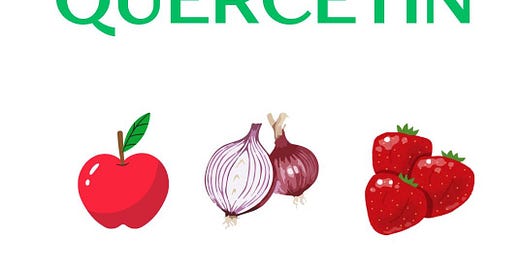




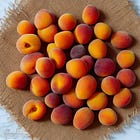

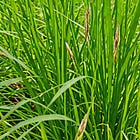
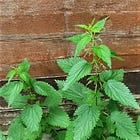

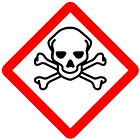
I know it's an ionophore, so when I take a zinc supplement I also take quercetin with it. I wasn't aware of all the other benefits. Thank you.